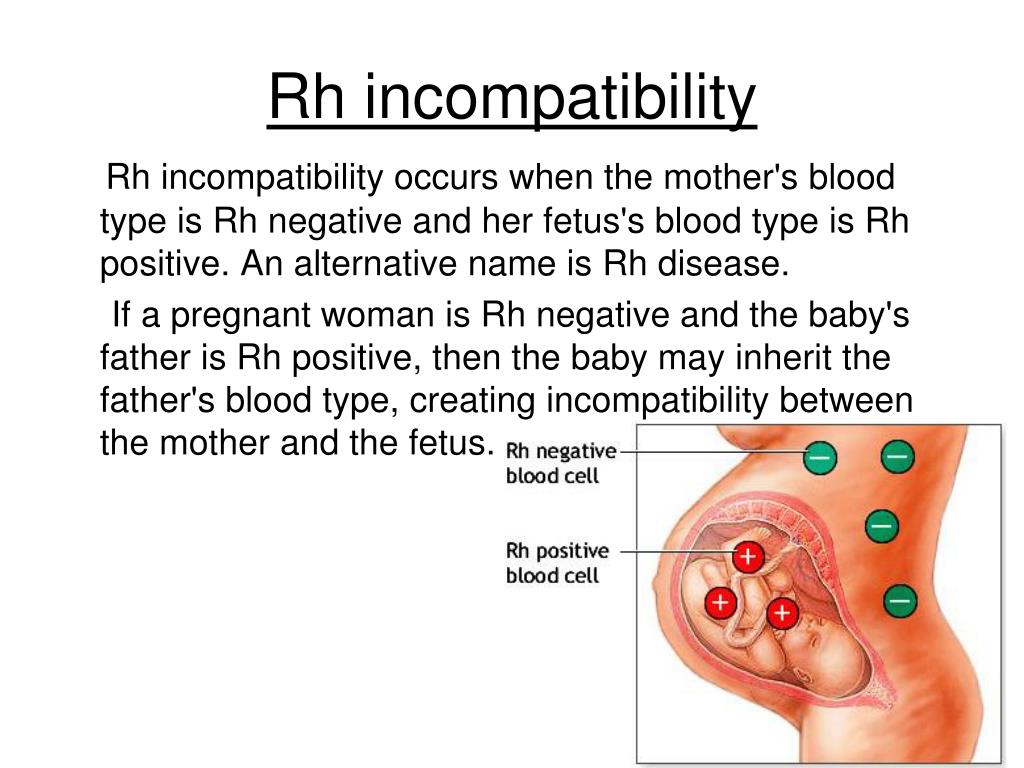
Shortly after birth you may again be given Rh immune-globulin Health care provider will give you Rh immune-globulin shots around the 28th week of pregnancy to prevent sensitization for the rest of the pregnancy. To protect against Rh factor problems, you should have a blood test done at an early stage of pregnancy. While Rh incompatibility rarely causes complications in a first pregnancy, during a subsequent pregnancy the Rh factor can result in severe anemia, jaundice, brain damage, To fight what it perceives as this foreign Rh positive substance. If during delivery, a transfusion, miscarriage or ectopic pregnancy, your blood and your baby's blood intermingle, your body may begin producing antibodies If your Rh-negativeīlood comes in contact with the baby's Rh-positive blood, serious problems can arise. The baby growing inside you, the Rh-negative mother, may have Rh-positive blood inherited from the father. The Rh factor can cause problems if you are Rh negative and the man who impregnates you is Rh positive. The Rh negative factor with only approximately 15% of people in the world being Rh negative. The Rh positive factor is much more prevalent than If you do not carry the protein, you are Rh negative. If you carry this protein, you are Rh positive. To the presence of a protein on the surface of red blood cells that indicates the Rh factor. Each of the four blood types is additionally classified according There are four blood types - A, B, AB, and O. Rh incompatibility is a rare condition during pregnancy and with effective treatment and early diagnosis, any harm to the growing fetus can be prevented.Sometime before you deliver you will have a blood test to find out your blood type. Treatments, such as early delivery, exchange transfusion, and phototherapy, can be administered to the baby to prevent complications arising from Rh incompatibility.

Regular antibody screening during pregnancies can help avoid such conditions. Administration of Rh immunoglobulin can prevent the development of Rh antibodies.įluid buildup leads to fetal jaundice.

However, for severe conditions, the baby can receive blood transfusion through the umbilical cord, which replaces the baby’s red blood cells.įor babies affected with jaundice and who have high levels of bilirubin in the blood, they are treated with special lights that reduce the bilirubin levels.Ĭertain preventative measures can be employed to prevent the detrimental effects of Rh incompatibility. For mild cases of hemolytic anemia, no treatments are prescribed. Medical professionals treat the condition depending on the severity of the condition.

SLIDESHOW 16 Early Signs & Symptoms of Pregnancy: Could You Be Pregnant? See Slideshow However, if the second baby is Rh-negative and the blood from the mother comes in contact with the fetal blood (during diagnostic procedures in pregnancy, intrauterine placental separation), the maternal antibodies attack fetal blood and generate a severe reaction in both mother and child. During this time, even if little blood (Rh positive) from the baby comes in contact with the Rh-negative mother, the mother’s blood develops antibodies against this blood for the lifetime.ĭuring the second pregnancy, if the baby is Rh-negative, there are no consequences.

Because the Rh factor is inherited from either of the parents, the risk can increase greatly if the father of the baby is an Rh-positive individual. Statistically, 85 percent of individuals in the world are Rh-positive. Who develops the risk of Rh incompatibility?ĭuring pregnancy, an Rh-negative woman develops the risk of Rh incompatibility.


 0 kommentar(er)
0 kommentar(er)
